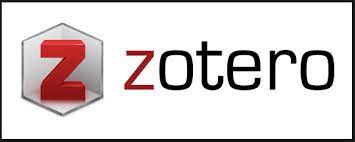THE EFFECT OF THE MEDITERRANEAN DIET PATTERN ON CHOLESTEROL LEVELS AND CARDIOVASCULAR HEALTH IN URBAN ADULTS
Keywords:
Mediterranean Diet, Cholesterol, Cardiovascular Disease, Heart Health, UrbanAbstract
Cardiovascular disease is one of the main causes of death in urban areas, which is triggered by unhealthy lifestyles, including unbalanced diets. The Mediterranean diet has been known as a dietary approach that is rich in healthy fats, fiber and antioxidants which play a role in maintaining heart health. However, its effectiveness in reducing cholesterol levels and improving cardiovascular health in urban communities still needs to be studied further. This research uses a systematic literature review method by analyzing various journals and scientific articles from trusted databases such as PubMed, ScienceDirect, and Google Scholar over the last 10 years. The collected data was analyzed thematically and comparatively to evaluate the impact of the Mediterranean diet on LDL, HDL cholesterol levels and the risk of cardiovascular disease. Studies show that the Mediterranean diet significantly lowers LDL levels, increases HDL levels, and reduces the risk of atherosclerosis. Additionally, this diet has been shown to be effective in reducing inflammation and improving blood vessel function, which contributes to a reduced risk of heart disease. Large studies such as PREDIMED support these findings by showing a 30% reduction in the risk of cardiovascular disease in individuals who adopt a Mediterranean diet. However, its implementation in urban areas faces challenges such as limited time, access to healthy food ingredients, and different eating habits. The Mediterranean diet has been proven to be beneficial in maintaining cardiovascular health and lowering cholesterol levels, making it an effective dietary strategy for urban communities. However, flexible adaptation is needed by considering the availability of local food ingredients and the lifestyle of urban communities so that this diet can be implemented sustainably.
Downloads
References
Amalia, F., Sari, G. M., Lukitasari, L., Othman, Z., Herawati, L., & Riyono, A. (2024). Moderate intensity continuous and interval training increased VEGF and decreased cholesterol levels in female rats high calorie diet. Retos, 59(Query date: 2025-02-27 20:40:54), 130–137.
https://doi.org/10.47197/retos.v59.107004
Anggie, A. S., Anita, F., & Nurhartanto, A. (2024). The Relationship of Diet and Excessive Cholesterol Levels on the Incident of Stroke In Batin Mangunang Hospital, Agung Kota. Java Nursing Journal, 2(2), 184–191. https://doi.org/10.61716/jnj.v2i2.52
Baig, A., Abdulsamad, H. M. R., Aljoudi, S., Rabeh, N., Dimassi, Z., & Hamdan,
H. (2024). Diet and Its Potential Impact on the Prognosis of Multiple Sclerosis: Mediterranean Diet. Nutritional Neurosciences, Query date: 2025-02-27 20:40:54, 185–193. https://doi.org/10.1007/978-981-97-4673-
6_13
Beauchamp, L. (2023). The Effects of a Plant-Based Diet on Adult Cholesterol Levels: To Better Understand Root Causes of Cardiovascular Disease A Systematic Review. Query date: 2025-02-27 20:40:54. https://doi.org/10.28971/532023bl141
Bubeck, A. M., Urbain, P., Horn, C., Jung, A. S., Ferrari, L., Ruple, H. K., Podlesny, D., Zorn, S., Laupsa-Borge, J., Jensen, C., Lindseth, I., Lied, G. A., Dierkes, J., Mellgren, G., Bertz, H., Matysik, S., Krautbauer, S., Liebisch, G., Schoett, H.-F., … Fricke, W. F. (2023). High-fat diet impact on intestinal cholesterol conversion by the microbiota and serum cholesterol levels. iScience, 26(9), 107697–107697. https://doi.org/10.1016/j.isci.2023.107697
Chaudhary, I., & Anwar, H. (2024). Impact of the Mediterranean Diet (Med- Diet) on Cancer and Cardiovascular Disease (CVD) Prevention and Management: A Narrative Review. International Health Review, 4(1), 70–
89. https://doi.org/10.32350/ihr.41.05
Desmawati, D., Mahdiyah, A. Y., & Kadri, H. (2023). Effect of High Fat and Cholesterol Diet on Total Blood Cholesterol Levels in Pregnant Wistar Rats. Majalah Kedokteran Bandung, 55(1). https://doi.org/10.15395/mkb.v55n1.2651
Dines, D. (2022). Review for “Impact of low‐dose quetiapine‐use on glycosylated haemoglobin, triglyceride and cholesterol levels.” Query date: 2025-02-27 20:40:54. https://doi.org/10.1111/acps.13515/v2/review1
Earley, M. A. (2014). A synthesis of the literature on research methods education. Teaching in Higher Education, 19(3), 242-253.
Ecarnot, F., & Maggi, S. (2024). The impact of the Mediterranean diet on immune function in older adults. Aging Clinical and Experimental Research, 36(1). https://doi.org/10.1007/s40520-024-02753-3
Fakhoury, H. M. A., Shamieh, S. E., Rifai, A., Tamim, H., & Fakhoury, R. (2022). Vitamin D Related Gene Polymorphisms and Cholesterol Levels in a Mediterranean Population. Journal of Cardiovascular Development and Disease, 9(4), 102–102. https://doi.org/10.3390/jcdd9040102
Filippin, D., Sarni, A. R., Rizzo, G., & Baroni, L. (2023). Environmental Impact of Two Plant-Based, Isocaloric and Isoproteic Diets: The Vegan Diet vs. The Mediterranean Diet. International Journal of Environmental Research and Public Health, 20(5), 3797–3797. https://doi.org/10.3390/ijerph20053797
Hageman, I. (2022). Decision letter for “Impact of low‐dose quetiapine‐use on glycosylated haemoglobin, triglyceride and cholesterol levels.” Query date: 2025-02-27 20:40:54. https://doi.org/10.1111/acps.13515/v2/decision1
Hammer, T., Kotolová, H., Procházka, J., & Karpíšek, M. (2024). Disruption of Lipid Profile, Glucose Metabolism, and Leptin Levels following Citalopram Administration and High-Carbohydrate and High- Cholesterol Diet in Mice. Pharmacology, Query date: 2025-02-27 20:40:54, 1–11. https://doi.org/10.1159/000541229
Hashiguchi, K., Kikuchi, T., Mizokami, T., Sato, M., & Nishimukai, M. (2022). The levels of plasma plasmalogen in retired female rats decrease by ovariectomy and intake of cholesterol-diet. Bioscience, Biotechnology, and Biochemistry, 86(11), 1543–1551. https://doi.org/10.1093/bbb/zbac148
Mattavelli, E., Domenighini, R., Redaelli, L., Tidone, C., Pirillo, A., Grigore, L., Pellegatta, F., Magni, P., Catapano, A. L., & Baragetti, A. (2022). Association between inflammatory markers levels, inflammatory intake of diet and adherence to the mediterranean diet. Atherosclerosis, 355(Query date: 2025-02-27 20:40:54), 158–158.
https://doi.org/10.1016/j.atherosclerosis.2022.06.684
Mustofa, S., Adjeng, A. N. T., Kurniawaty, E., Ramadhita, L., & Tamara, T. (2024). Influence of Rhizophora apiculata barks extract on Cholesterol, Triglyceride, LDL, and HDL Levels of Rattus norvegicus (Sprague Dawley) fed high-cholesterol diet. Research Journal of Pharmacy and Technology, Query date: 2025-02-27 20:40:54, 396–400. https://doi.org/10.52711/0974-360x.2024.00062
Poli, G., Iaia, N., Leoni, V., & Biasi, F. (2022). High cholesterol diet, oxysterols and their impact on the gut–brain axis. Redox Experimental Medicine, 2022(1). https://doi.org/10.1530/rem-22-0003
Primo, D., Izaola, O., Gomez, J. J. L., Rico, D., & Luis, D. A. de. (2024). Impact of the rs822393 Variant on Adiponectin Levels and Metabolic Parameters after Weight Loss Secondary to a High-Fat Hypocaloric diet with Mediterranean Pattern. Lifestyle Genomics, Query date: 2025-02-27 20:40:54. https://doi.org/10.1159/000539056
Puca, E. (2024). Dietary Strategies for Weight Loss and Reducing Low Grade Inflammation: Evaluating Mediterranean Diet versus Mediterranean Diet plus Food Intolerance Elimination Diet in Obese Patients. Journal of Clinical Research and Reports, 17(2), 1–8. https://doi.org/10.31579/2690-1919/435
Radu, F. I., Ranetti, A. E., Vasile, T. M., Sirbu, A. M., Axelerad, A., & Sirbu, C. A. (2023). The Impact of the Hypercaloric Diet versus the Mediterranean Diet on Insulin Sensitivity. Romanian Journal of Military Medicine, 126(3), 275–280. https://doi.org/10.55453/rjmm.2023.126.3.6
Salma, B. A. (2024). The relationship between adherence to the Mediterranean diet and abdominal obesity and related metabolic risk. Nutrición Clínica y Dietética Hospitalaria, 44(4). https://doi.org/10.12873/444abu
Schmidt, T., Harmon, D. M., Kludtke, E., Mickow, A., Simha, V., & Kopecky, S. (2023). THE IMPACT OF THE KETOGENIC DIET ON CHOLESTEROL
LEVELS IN “HYPER RESPONDERS.” American Journal of Preventive Cardiology, 15(Query date: 2025-02-27 20:40:54), 100548–100548.
https://doi.org/10.1016/j.ajpc.2023.100548
Snyder, H. (2019¬). Literature review as a research methodology: An overview and guidelines. Journal of business research, 104, 333-339.
Sultan, M. I., Ibrahim, S. A., & Youssef, R. F. (2024). Impact of a Mediterranean diet on prevention and management of urologic diseases. BMC Urology,
24(1). https://doi.org/10.1186/s12894-024-01432-9
Wang, J.-L., Tsai, Y.-T., & Lee, C.-L. (2024). The Impact of Mediterranean Diet on Survival in Chronic Obstructive Pulmonary Disease. Monitoring Airway Disease, Query date: 2025-02-27 20:40:54. https://doi.org/10.1183/13993003.congress-2024.pa2155
Wong, C. (2024). Keto diet does help fat loss but also raises levels of bad cholesterol. New Scientist, 263(3503), 11–11. https://doi.org/10.1016/s0262-4079(24)01424-6








